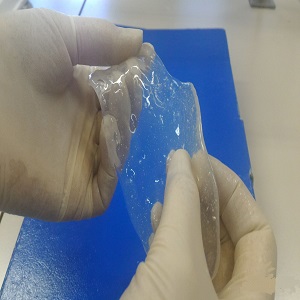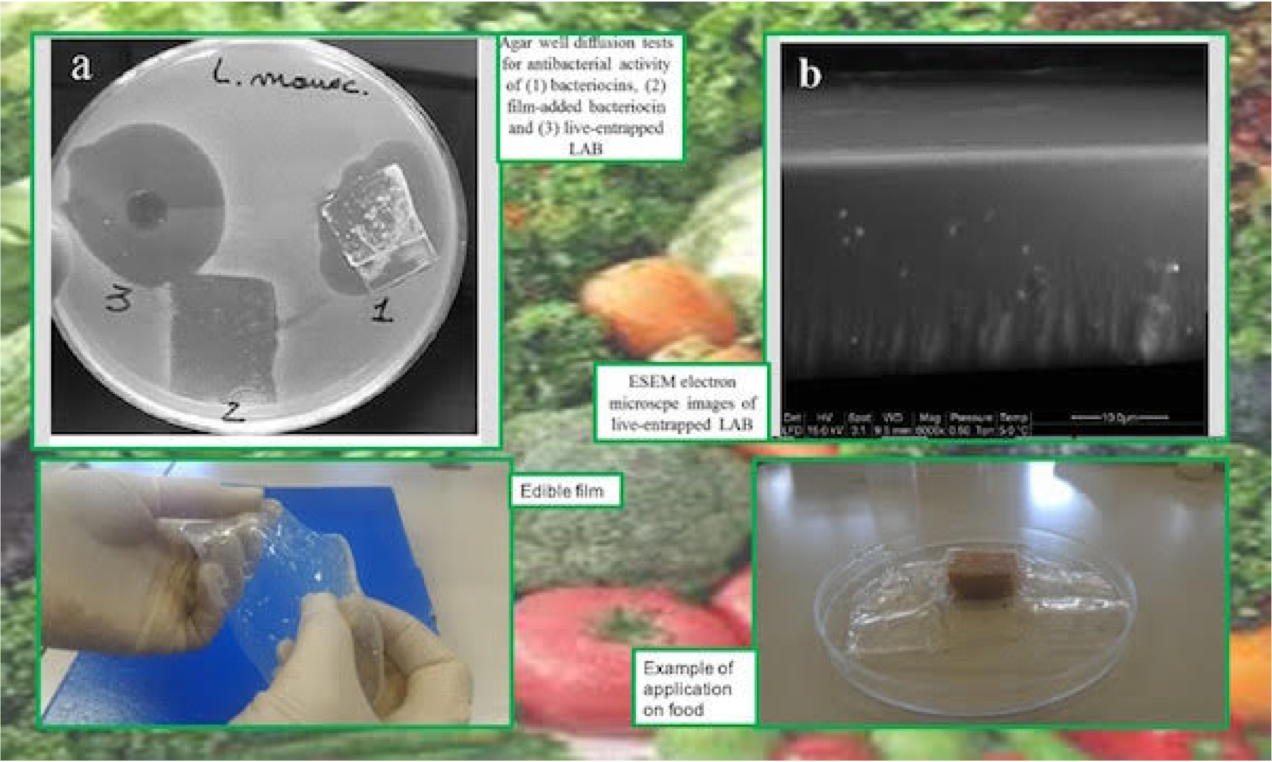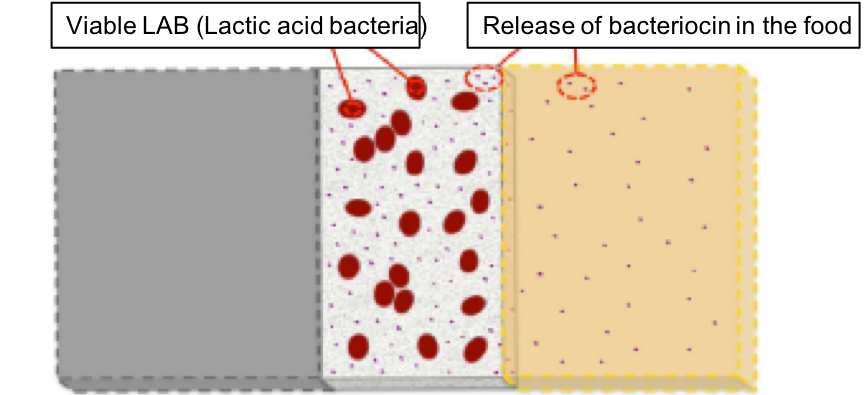The edible antibacterial film is an innovative GREEN packaging that fulfills the of consumer’s request of a natural product, with the respect of the environment. It is based on biomolecules from processing by-products, added with living probiotic LAB (Lactic Acid Bacteria) for the control the growth of both spoilage bacteria and pathogens. LAB bacteria entrapped into the film maintain their liveability and produce an active substance (bacteriocin), assuring a long lasting antibacterial activity when in contact with foods. The use of agri-food by products for package application will also provide significant environmental benefits.

Patent Status
PENDING

Priority Number
102018000006424

Priority Date
18/06/2018

License
INTERNATIONAL
Market
Post-processing contamination, and food safety and quality maintenance, are some of the major concerns for the food industry. An answer to this issue could be the use of controlled release packaging as the LAB (lactic acid bacteria) edible film. The patent will improve the valorization of the food preservation system. The aim is the development of smart green packaging materials, able to support food safety, and endowed with a low environmental impact on wastestreams.
Considering the challenge and needs previously exposed, we can claim that this technology could cover a good market share in two different sectors:
Antimicrobial packaging market. Food industries are starting to give a lot of attention to the production of food without chemical additives. For this reason, they will find an opportunity in the usage of this technology.
Probiotic market: use of the LAB edible film in the probiotic market, a simple and alternative way to introduce probiotic bacteria into the daily diet.
Problem
Recent modifications in food production and processing practices, and ever-changing food habits of the consumer are important factors for the increase of foodborne infections. Actually, chemicals are used for preservative purpose, but a lot of them have damaging effects not only for consumers by food intake, but also for the environment, with possible effects on living organisms, and on the exposed ecosystems. To meet the increasing demand of consumers who look for “natural” safe products with a longer shelf life, an innovative safe and “green” technology has been developed based on the entrapment of a living LAB (Lactic Acid Bacteria) in an edible packaging material, capable to release “in loco” its active antibacterial substance (bacteriocin). This LAB strain is capable to inhibit or reduce the spoilage and pathogenic bacteria growth without causing unacceptable sensory changes, will be employed.
Current Technology Limitations
Foodborne diseases are a widespread and growing public health and economic problem, despite technological improvements and a much better understanding of responsible microorganisms. Pathogens and spoilage bacteria still represent a public health and economic problem: food-borne diseases continue to occur with a positive trend, and it has been estimated that 1/4 of all foods produced is lost due to microbial spoilage. Usually, chemicals are used for preservative purpose, but a lot of them have damaging effects not only for consumers, but also for the environment, with possible effects on living organisms, and on the exposed ecosystems. This edible film belonging to the category of Active antimicrobial packaging, leads both to extension of shelf life, and maintenance of microbial safety . Moreover, it is a green film and an example of valorisation of agri-food waste as obtained using, among ingredients a compound (pectin) obtained from fruit peels (citrus fruits, apples, etc.) .
Killer Application
Pathogens and spoilage bacteria still represent a growing public health and economic problem: the application of a live probiotics edible film in RTE (RTE, ready to eat) foods is a safe and green active packaging technology to be used for the control of both spoilage (that reduce the shelf-life of the product) and pathogenic bacteria (of interest in human health)
Our Technology and Solutions
The edible antibacterial film, containing a probiotic strain able to grow and proliferate and at the same time to produce its bacteriocin, allows to guarantee a longer lasting antibacterial activity. This ability of the LAB to produce a natural antibacterial compound directly in contact with food gives the edible film that contains them the ability to increase the shelf-life of products, in particular refrigerated ones, since at this storage temperature the lactic bacteria are able to grow and produce bacteriocin in a constant manner. Furthermore, the film, thanks to the incorporation of the bacteriocin producing strain, allows to convey in the body a lactic bacterium, which possesses all the characteristics of a “probiotic” strain.
Advantages
Main advantages are:
- Packaging reduction, in particular petroleum-derived plastics;
- It represents a vehicle to ingest a probiotic strain;
- The presence of a vital strain allows a constant production of its bacteriocin (bio-preservation), hence a long-lasting antibacterial activity (extension of shelf-life)
Roadmap
The agri-food chain is a leading sector of primary importance for Italy, contributing over 11% to the added value of the Italian economy. For the industrial development of the Patent it will therefore be important to interact, through meetings, congresses and other forms of dissemination, with the made in Italy food companies, whose products are represented by perishable foods (milk, fruit and vegetables and their processing products)
TRL
Team











